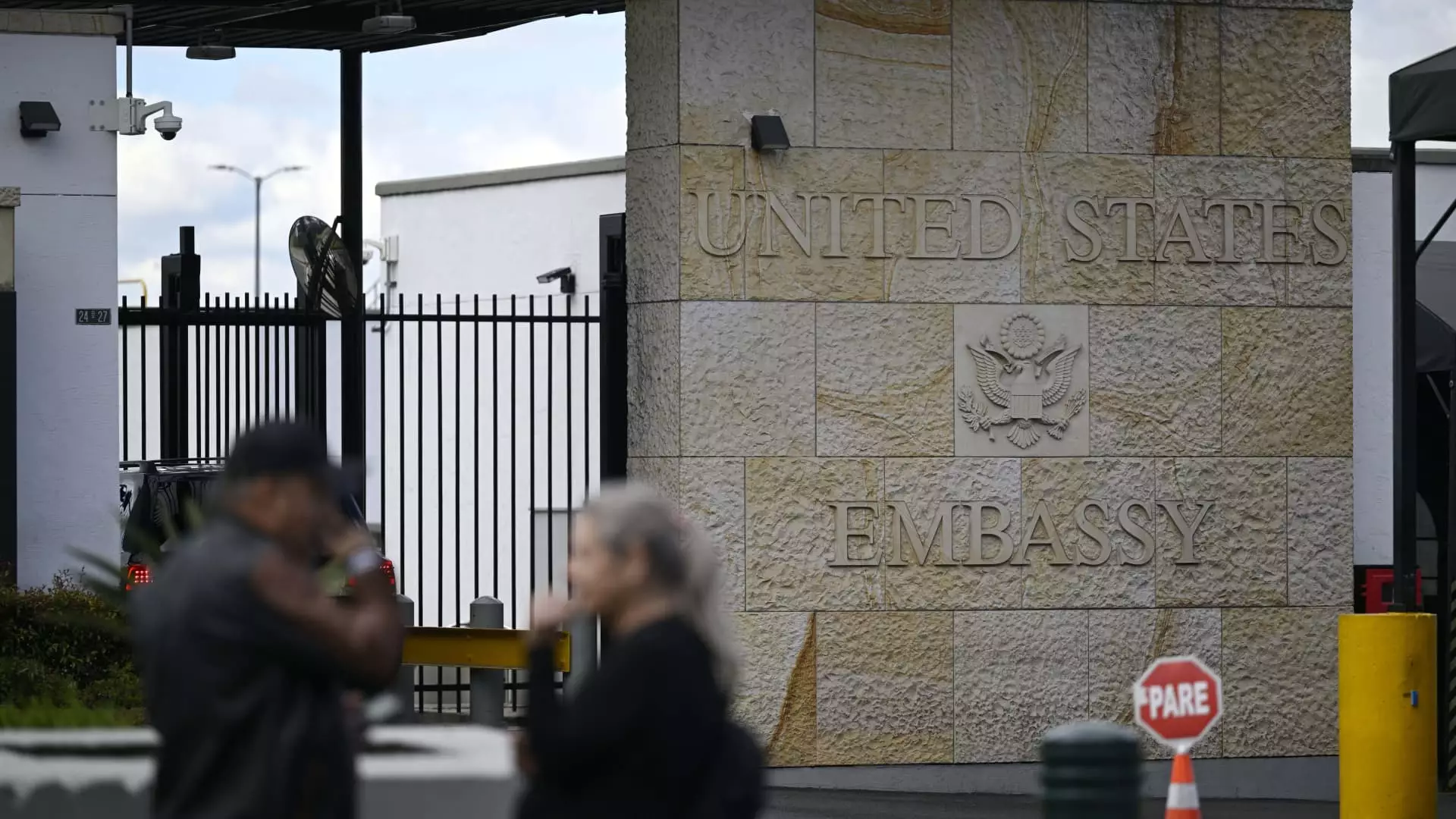In a significant shift in foreign policy management, the administration of President Donald Trump has initiated measures aimed at fundamentally reorganizing the U.S. diplomatic framework. This has resulted in strategies promoting staffing reductions across U.S. embassies worldwide, a move that is undoubtedly emblematic of the broader “America First” ideology that has characterized Trump’s presidency.
In recent weeks, multiple sources have reported that U.S. embassies, upon directive from Washington, are engaged in preparations to cut their staff significantly. Both U.S. diplomats and locally hired personnel may face a 10% reduction in their ranks. This inquiry into workforce numbers underscores an intense scrutiny of governmental resources that aims to streamline operations at a time when the Trump administration seeks a more assertive placement on the international stage.
As this process unfolds, embassies are required to compile lists of their staff to meet the immediate demands of the State Department. It emphasizes a new era of accountability, even as commentators express concerns about the potential ramifications for U.S. diplomatic efficacy. A robust diplomatic corps is essential for fostering international communications and negotiations, and a lessened workforce could hinder these complexities.
Additionally, it has come to light that the State Department has already terminated approximately 60 contractors specifically associated with its Bureau of Democracy, Human Rights, and Labor, hinting at a broader trend of systematic cuts across various departments. These actions are indicative of an administration that not only seeks to reduce funding but also to reorient American diplomatic missions toward a more nationalistic agenda.
The implications of such employment instability are profound. As experienced professionals exit, the State Department may struggle to maintain the same level of expertise. Diplomats-in-training may also confront challenges ahead, departing from conventional methods in exchange for a more streamlined but potentially under-resourced operation.
Further compounding these staffing reductions are recent executive orders initiated by Trump. This includes a directive that mandates the Secretary of State, Marco Rubio, to overhaul the foreign service. Dubbed “One Voice for America’s Foreign Relations,” the order underlines a commitment to aligning State Department operations with Trump’s foreign policy vision, which declares that the utmost priority is to implement the president’s agenda without deviation.
For those within the ranks of the State Department, this executive order carries a threat of professional discipline for failure to comply with these directives, potentially resulting in job terminations. This tactic not only enforces a culture of loyalty within the department but also shifts the focus away from traditional interests in diplomacy and toward a performance-based scenario tightly connected with political allegiance.
The directive to reevaluate the Foreign Affairs Manual further illustrates the extent to which the Trump administration intends to reshape the operational strategies of the State Department. The foundational policies that dictate how diplomacy is conducted will be scrutinized, paving the way for adjustments that may streamline processes but risk losing essential functions that have historically contributed to effective U.S. foreign relations.
The complexities of international aid and humanitarian efforts also hang in a precarious balance. In particular, the freeze on foreign aid and the dismantling efforts directed at the United States Agency for International Development (USAID) are significant. With figures like Elon Musk, a vocal supporter of Trump’s policies, leading the charge to minimize governmental oversight, the trajectory of U.S. diplomacy may experience profound implications. As outreach initiatives diminish, vulnerable populations in dire need of assistance could be adversely affected.
The Trump administration’s sweeping strategies to alter the composition and operational strategies of U.S. embassies reflect a broader agenda of reform that is both ambitious and controversial. As staff reductions and rigorous policy adjustments take effect, the essential question remains — can U.S. diplomacy maintain its effectiveness amidst these transformative changes? As the global landscape continues to evolve, so too will the adaptive measures necessitated by a tumultuous political sphere. The ramifications of these actions will resonate in the corridors of power both domestically and internationally for years to come.


Leave a Reply